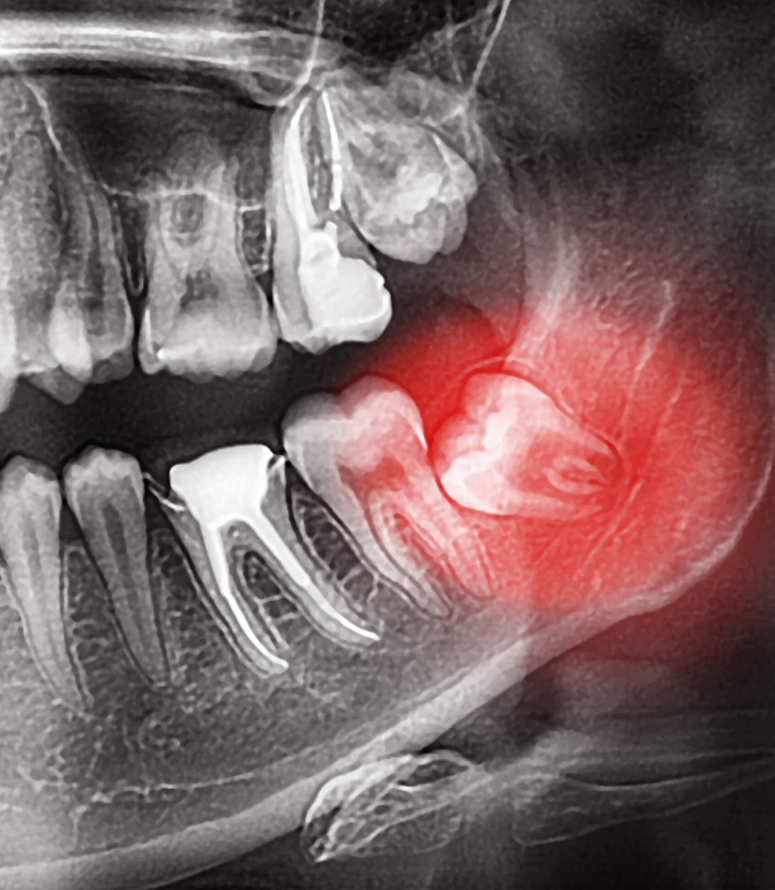There is a lot of anxiety associated with getting a wisdom tooth extracted. Performing thousands of these extractions over the years we know that it comes with the territory. So rest assured we are prepared to make this often necessary surgery an uneventful, comfortable experience for you overall.
Before removing a wisdom tooth, we will give you a local anesthetic to numb the area where the tooth will be removed. Wisdom teeth extractions do not need to be a stressful, fearful experience. If you have a high level of anxiety prior to the procedure, a pre-medication “sleep dentistry” might be used, especially if several or all of your wisdom teeth will be removed at the same time. The pre-medication will make you groggy or cause you to sleep through the procedure, but the benefit is that you will have a pain free, comfortable experience.

When Do Wisdom Teeth Come In?
They’re impacted. Because they’re so far back in the mouth, wisdom teeth may not come in normally. They can be trapped in the jawbone or gums, which can be painful.
They come in at the wrong angle. This is common and they may press against your other teeth.
Your mouth isn’t big enough. In many cases the jaw does not have room for an extra set of molars.
You have cavities or gum disease. This often occurs when you are not able to reach your wisdom teeth with your toothbrush or dental FLOSS.

Dry Socket And Wisdom Teeth Recovery
Most people have little to no pain after surgery. Swelling and mild discomfort is very common for up to 72 hours after the procedure. Your mouth may need a few weeks to completely heal.
Here are some tips for the first 3 days after surgery and to avoid the worst possible side effect of the procedure, a dry socket:
